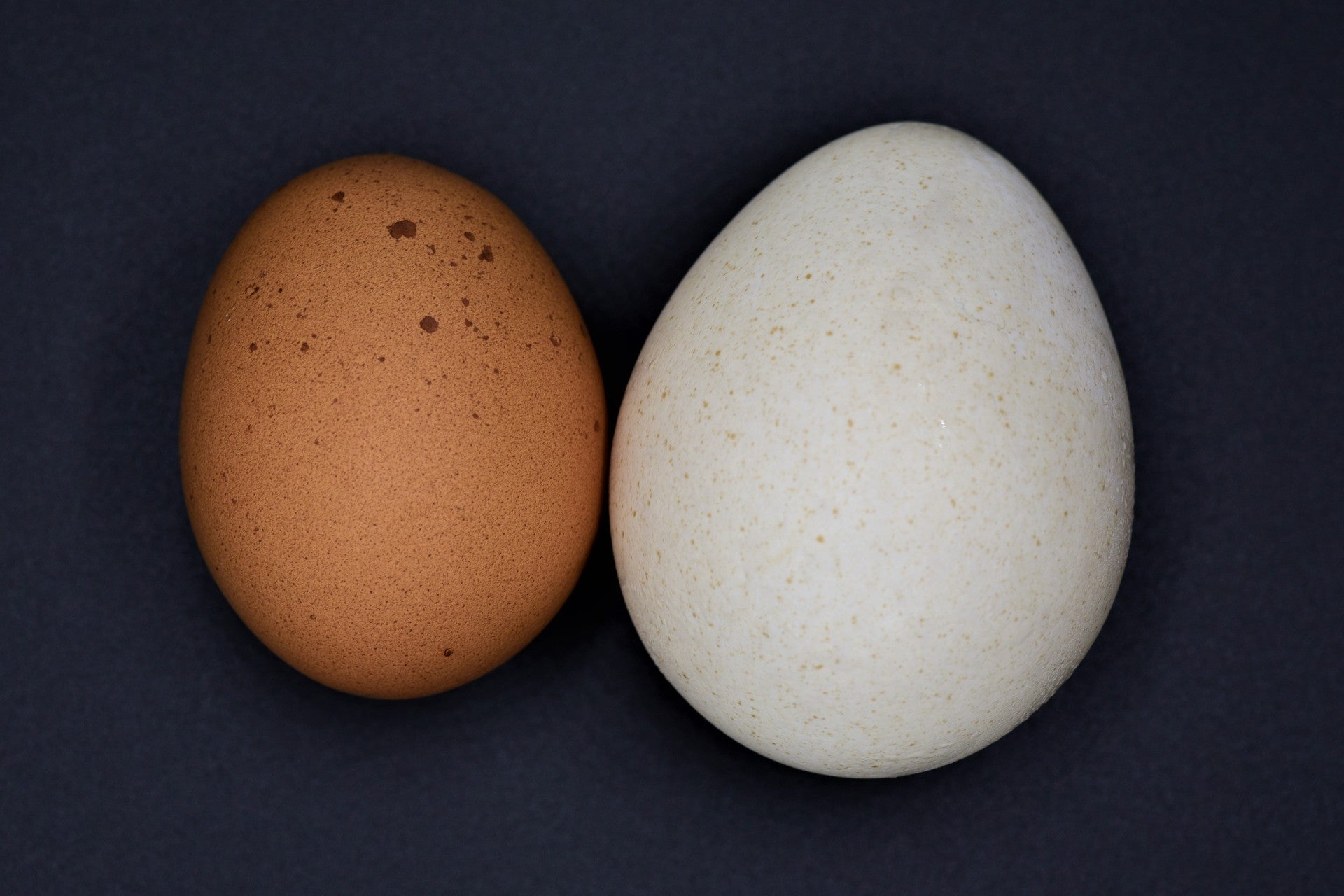Have you ever wondered why you never seem to see a turkey egg? After all, you can buy the eggs of most other domesticated poultry, and while nothing really comes close to chicken eggs in terms of popularity, it’s not uncommon to see duck eggs, goose eggs or quail eggs for sale in stores or at markets. Turkeys must lay eggs, right? So why is it that they seem to be off the menu?
Turkey eggs are nutritionally similar to chicken eggs, although they are slightly fattier and more calorific, even when you adjust for their larger size. The average turkey egg contains 135 calories to a chicken egg’s 72, with 9 grams of fat versus 5 grams for chicken eggs. They also contain more than twice as much cholesterol.
That said, there are some benefits to choosing turkey eggs. They contain almost twice as much protein as chicken eggs, at an average of 9 grams to 5. This is good news, as egg protein is particularly good for you, containing all of the essential amino acids your body needs but is unable to produce itself.
Turkey eggs are a good source of B vitamins, and vitamins B12 and B9 (folate) in particular. They are also rich in vitamin A and iron, and provide some of your daily requirement of calcium, magnesium, phosphorus, potassium, sodium and zinc.
Where to find turkey eggs
Turkey eggs are extremely difficult to get hold of, and you’re unlikely to find any at your local store. A farmer’s market may be a better bet, but even here you may have no luck. If you really want to track some down, you could try contacting farms that specialise in heritage turkeys to see if they sell eggs. The time of year may also have a bearing on availability, as turkeys lay most of their eggs between April and June.











